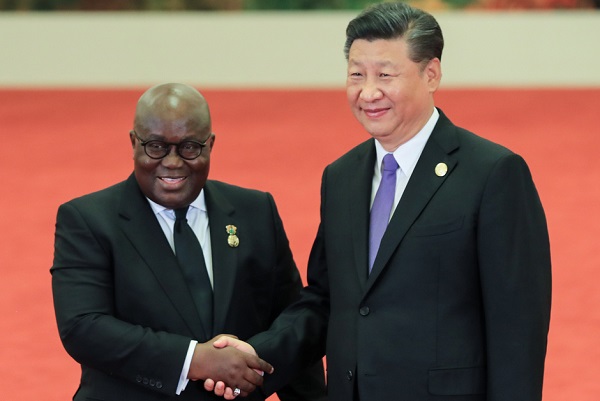
Beijing should just ignore accusations and work with Ghana
About 150 kilometres west of Ghana's capital Accra sits a World Heritage site, Cape Coast Castle, a reminder of Africa's colonial past in the hands of European traders.
Bui Dam
In northern Ghana stands a dam on the Black Volta River - Bui Dam - a flagship project of China-Ghana cooperation. The 400-megawatt hydroelectric dam was built by the government of Ghana and Sino Hydro, a Chinese construction company.
After its construction in 2013, aside from increasing Ghana's electricity generation capacity by 22 per cent, the dam has also become an attraction.
When you Google the words "China" and "Africa," other than bilateral ties or cooperation, you will also see China's activities in Africa described as "new colonialism," or "setting debt traps" for African countries.
Advertisement
As China's status rises in the international community, there has never been a shortage of accusations.
China should be open to constructive criticism, but when facing groundless accusations, it should always ignore them and continue to do the right thing for Africa.
Africa and colonialism
African people struggled with colonialism for centuries and fought hard to rid themselves of it.
But during a trip to Ghana, a democratic country located in West Africa, from high-level government officials to farmers, all the Global Times journalist experienced was warmth and a deep desire to work with China and attract Chinese investments.
Government officials said Ghana is a country with abundant resources but lacks development. So they wanted to learn from China's development model. They expressed their desire for Chinese investment.
Ghanaian businesspeople wanted greater collaboration with their Chinese counterparts so they can get
Simply put, Ghana is keen on cooperating with
Ghana won independence in 1957, and after decades of development is now a politically and economically stable country. Former US president Barack Obama in 2012 hailed Ghana as a "model for democracy" in Africa.
The majority of Ghanaians are religious. During a meeting with the chief executive of the Ada East District, one of 254 districts in Ghana, I was struck by one minor detail in an everyday question: Sarah Dugbakie Pobee asked an employee, "Have you finished praying?" before requesting some documents.
Ghana’s economy
It is true that Ghana's economy is not very developed. But since President Nana Addo Dankwa Akufo-Addo took office and launched a series of reforms, including the One District, One Factory initiative, the economy has been rapidly growing.
Ghana's GDP growth rebounded to 8.5 per cent in 2017, compared to 3.7 per cent in 2016. And inflation dropped from 15.4 per cent in December 2016 to 11.8 per cent in December 2017, and 9.8 per cent in May 2018.
Ghana enjoys valuable resources such as manganese, bauxite, industrial diamonds, timber and rubber. Ghana is also the world's second largest cocoa producer and exporter after Cote d'Ivoire. But because of an immature infrastructure, it has not exploited its full potential.
China is known for excellence in infrastructure. And China has expressed its willingness to help other developing countries. The flagship Belt and Road project of Kenya's railway from the capital, Nairobi, to the port city of Mombasa, which opened last year, is a good example of that willingness.
Economic and political stability, enthusiastic people, abundant resources and China's ability in infrastructure development create a great opportunity for potential cooperation.
As the head of Ghana Investment Promotion Centre, R. Yofi Grant, told me, "We know what you're looking for. We have it. You know what we are looking for. You have it. We believe that with China we get a win-win situation." So China should ignore groundless criticism and continue to do right for itself, Ghana and all of Africa.
The writer is a journalist with Global Times, Beijing, China, who visited Ghana recently.
